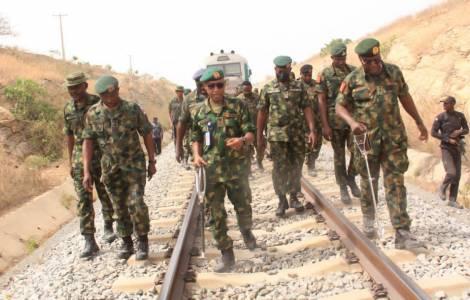
Terrorist violence in Kaduna: Three priests have been kidnapped in the region this month alone
New attacks have occurred in the state of Kaduna, where two of the three priests kidnapped in Nigeria in the last month were kidnapped (see Fides 29/3/2022). In the last 24 hours, two attacks have been carried out on trains running on the Abuja-Kaduna route. At least eight people were killed in the attack on the evening of March 28. The attack took place around 7:45 p.m. in the village of Dutse in Chikun Municipality, a few kilometers from Rigasa Railway Station. The terrorists planted improvised explosive devices on the tracks and forced the Abuja-bound train coming from Kaduna to a halt. The police officers escorting the train were overwhelmed and only the arrival of military reinforcements forced the terrorists to flee. However, they took several passengers hostage. The train’s passengers, under military escort, were then taken about 45 kilometers on foot to the Abuja-Kaduna highway, from where they were taken by bus to a military hospital in Kaduna and to Saint Gerald’s Catholic Hospital. Yesterday, March 29, the Kaduna-Abuja highway was attacked by gunmen who blocked traffic and abducted motorists. The terrorist gangs operating in the state of Kaduna seem to have a precise strategy to hit the most important transport links. On March 26, a commando attacked Kaduna airport (see Fides, 28/3/2022). According to a member of the opposition Peoples Democratic Party (PDP), more than 10,366 Nigerians were killed by terrorists in 2021. In the same year, more than 2,900 kidnappings were carried out. At least 536 Nigerians were killed by terrorists in the first three months of 2022. Insecurity in Nigeria varies from area to area. In the north-east, the jihadists from the Islamic State of West Africa Province (ISWAP) represent the main threat; in other Northern States and in the so-called Middle Belt, the central zone separating the Muslim-majority North from the Christian-majority South, the presence of bandit groups and clashes between peasants and ranchers (both phenomena overlapping in some cases) are the main risk factors; finally, in the South, separatist tensions and those related to environmental damage from oil production have created a potentially explosive situation. (L.M.) (Agenzia Fides, 30/3/2022)
Source: Fides





